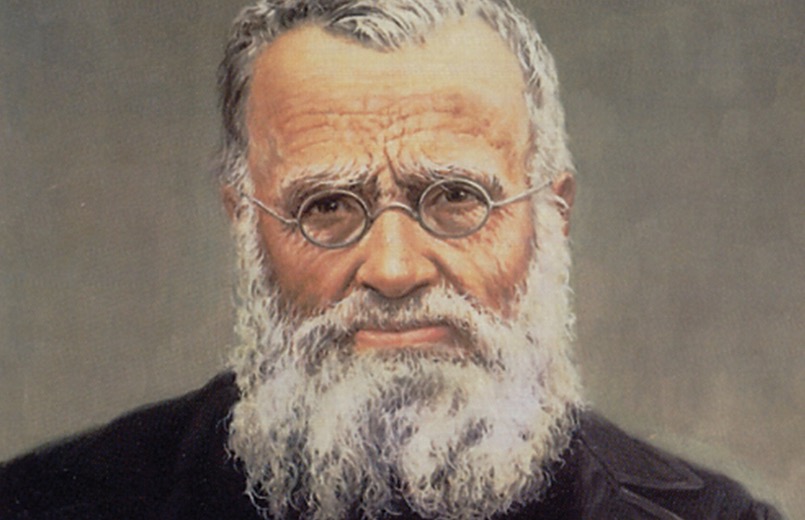It was said that the young Blessed Joseph Gérard (1831-1914) was so filled with missionary zeal that no pastoral commitment close to home would satisfy the Lord’s calling heard deep within his soul.
He belonged to the Oblates of Mary Immaculate, a religious congregation of men founded in France by St. Eugene de Mazenod to bring the Gospel to the poor throughout the world. Ordained a deacon by the founder, the young Gérard immediately set out for his assignment in southern Africa.
Gérard was well-respected by his superiors and colleagues. Known for his piety and holiness, he was not thought to be an academic — although he had a facility for learning new languages.
A brief time after arriving for ministry among the Zulu people in 1854, Gérard was ordained a priest. Because several missions established by the Oblates became too difficult, they moved on to begin other opportunities. Their saintly founder wrote to encourage Gérard, “Victory is promised only to perseverance.”
Interestingly, in addition to the evangelical counsels of chastity, poverty and obedience, the Oblates take a fourth vow of perseverance. The grace of wholehearted perseverance is exactly what defined Gérard’s missionary heart, and it was what he needed to endure the difficulties that lay ahead. Evangelization among the tribes to which he was assigned brought many challenges. For instance, the people felt they had no need for conversion, and they were not going to readily set aside practices they believed sustained their economy and society, like polygamy.
The first years of Gérard’s work with the Basotho people appeared to bear little fruit. He did not have many catechumens to prepare for entrance to the Christian faith. And others who were friendly with him did not seriously entertain such a prospect. It was two years before he could attract his first catechumen there.
It is said that priestly celibacy gave the missionaries more credibility among the natives, as opposed to Calvinist missionaries. Celibacy showed authenticity in living the Gospel and made Gospel living something tangible and credible.
One of the chief tasks of a missionary is to become accepted and respected. It is only then that the faith they preach can begin to take root in the hearts of the people. Pope St. John Paul II indicated Gérard’s success in this regard at his beatification in 1988: “People wanted to be near to Father Gérard because he always seemed near to God.”

The Roma Valley in Lesotho. Public domain
Ever since his arrival in Africa, Gérard made it a point to live among his people, like his people. Emulating the Sacred Heart of Jesus, to whom he consecrated himself early in his priesthood, Father Gérard spent his life for his people. As he put it, he and his confreres were called to emulate Jesus through their work: “We are ambassadors for Christ, and like him, we have come for you, to live and die for you.”
Gérard did not care about the obstacles put before him, only desiring to bring Jesus to the people in his charge. In the face of many hardships, he would bring the Eucharist to people on foot or by horseback. He also planted the seeds among his people of his intense Marian devotion.
Caring for those in need until just before his death, his last years were spent at the original mission at which he served. He aptly described his own ethos when describing his spiritual ambition in some retreat notes: “We must love them, love them in spite of everything, love them always.” The apostle of Lesotho died May 29, 1914.
His feast day is May 29.
Michael R. Heinlein is editor of Simply Catholic. Follow him on Twitter at @HeinleinMichael.

